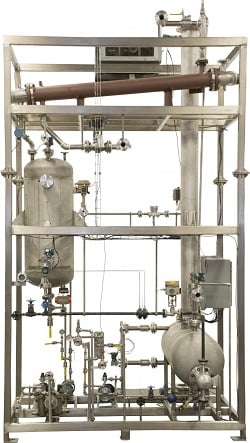Engineering360 News Desk | June 30, 2022
Fats, oils and grease — collectively known as FOG or brown grease — are produced when cooking residues are washed down the drain and reside in grease traps or the sewer system for a prolonged period of time. A surprisingly large amount of FOG is rinsed down the drain and subsequently discharged into sewer collection systems, which can cause major issues like pipe blockage leading to sewer overflows. FOG poses problems for wastewater treatment plants, where the waste material is costly to manage, treat and dispose of. It is often landfilled or incinerated — both of which have a negative impact on the environment. For
 Source: ProFlow Inc. wastewater treatment, FOG is a major pain point.
Source: ProFlow Inc. wastewater treatment, FOG is a major pain point.
Resource Recovery Systems (REA), located in New Haven, Connecticut, has developed an innovative solution to deal with FOG. With REA’s FOG-to-biodiesel system, FOG is diverted and captured upstream before it has a chance to reach the wastewater treatment plant and cause issues. From there, the system converts the brown grease into B100 biodiesel at the point of extraction without interference with wastewater treatment plant operations.
With the help of ProFlow’s engineering and design team, REA developed an automated, continuous-flow system that allows the converted biodiesel to be sold or used to generate power. Biodiesel produced from waste feedstocks such as brown grease reduce carbon emissions by up to 74%, compared to petroleum diesel, when the biodiesel is used to fuel state and municipal fleets in Connecticut.
